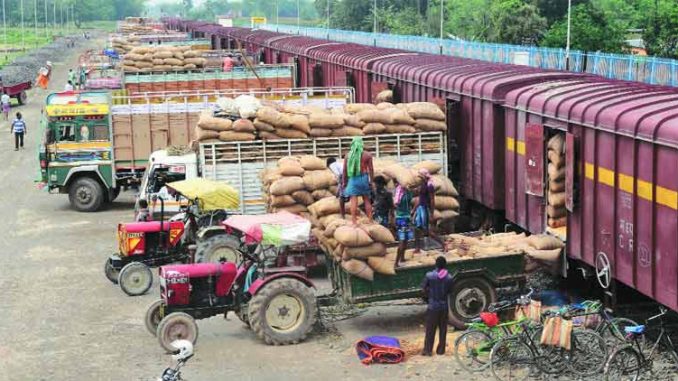
By Zia Haq
Processed food items and organic produce would be totally deregulated and made freely exportable under the framework, an official said requesting anonymity.
New Delhi: The government has finalised a more liberal agriculture trade policy to bring about predictability and enable exports to more markets, an official said on Monday, requesting anonymity.
The new policy, likely to be presented before the Cabinet soon, seeks to free up most commodities other than staples – from pulses to potatoes – from frequent export bans, the official said. Processed food items and organic produce would be totally deregulated and made freely exportable under the framework, which is similar to the country’s three-year foreign trade policies.
India’s agricultural exports grew five times from about $8.7 billion in 2004-05 to $42.6 billion during 2013-14. This however plunged to $33 billion in 2016-17.
India often uses policy measures to restrict farm trade, particularly exports, to control domestic prices. These measures include the so-called minimum export price for traders, often set higher than international prices so that traders are discouraged from selling abroad. This is done to shore up local supplies and cool prices.
However, economists have warned these frequent export bans bring unpredictability in international farm trade, ultimately hurting farm incomes.
In March, the commerce ministry had floated a draft national agriculture export policy in line with the government’s target of doubling farmers’ income. It had sought to boost agricultural exports from $30 billion currently to nearly $60 billion by 2022. The current proposal takes that process forward.
The farm exports policy, which is set to be approved by the Prime Minister’s Office, will be a comprehensive one. Under it, infrastructure and rules are to be eased for over 50 export-oriented farm clusters, already identified by the agriculture ministry and the Agricultural and Processed Food Products Export Development Authority.
The policy talks about the need to standardise taxes in local markets for export-oriented produce. For instance, local market taxes vary widely for basmati rice, a key export commodity. It is 4% in Punjab and Haryana and 1.6% in Rajasthan. For pulses, the fees are 1% in Maharashtra and 2.5% in UP. “These are like implicit taxes on the farmer, although technically farm income is free from taxes,” the official said.
The policy talks of branding India’s farm products as “produce of India”, akin to the “Make in India” programme for the manufacturing sector. It proposes round-the-clock single-window clearance of perishables export items.
The government’s Doubling Farmers’ Income (Volume IV) plan states that India’s current farm exports policy “does not promote agricultural trade but is mainly used to control prices in the domestic market”.
A three-year ban on non-basmati rice exports during 2008-11 amid a rice glut had led to a “notional loss of $5.6 billion”, said the draft version of the new policy released earlier for consultation states.
Take for instance, the potato price crash of 2017. To rein in prices, the government had imposed a minimum export price on potatoes, put the commodity under the Essential Commodities Act and also allowed duty-free imports. This choked exports and caused domestic prices to crash amid a potato glut of 48 million tonnes.
Since there is a clear trend of a glut in several commodities and domestic prices are low, finding long-term export markets is key to improving farm incomes, said economist SR Sudhakar, a former professor of Tamil Nadu Agricultural University.
Sudhakar, however, said such a policy wouldn’t succeed without resolving more complex problems such as liberalised land-leasing laws and coordination with states, since agriculture lies in the domain of state governments.
Source: Hindustan Times

Leave a Reply